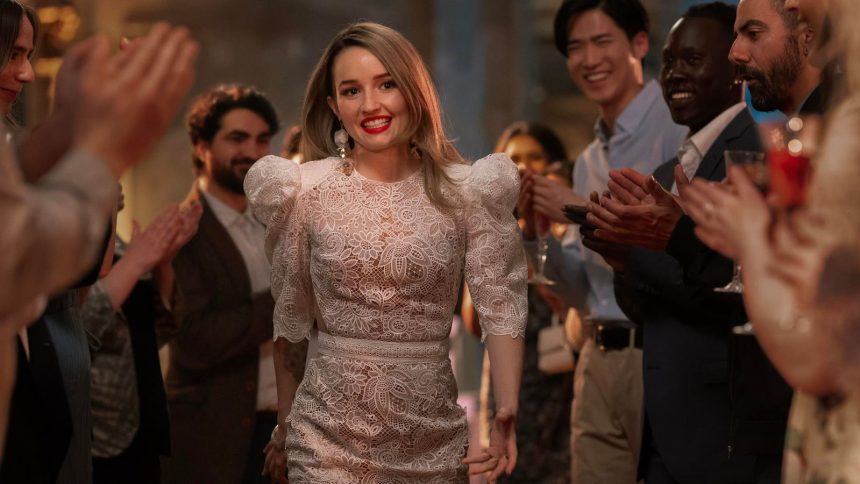Belle Gibson, the subject of Netflix’s new series “Apple Cider Vinegar,” captivated a vast online following with her purportedly miraculous recovery from brain cancer through holistic methods. Her story, initially met with widespread admiration and inspiring countless individuals seeking alternative health solutions, eventually unraveled, revealing a complex web of fabricated illnesses, fraudulent charitable claims, and a profound betrayal of trust. Gibson’s journey from wellness guru to disgraced fraudster highlights the seductive nature of pseudoscience in the digital age and the vulnerability of individuals seeking hope in the face of illness. The Netflix series, a fictionalized account inspired by Gibson’s real-life deception, promises to explore the motivations behind her lies and the broader societal implications of her manipulative tactics.
Gibson’s rise to prominence began with her online presence, where she shared her purported battle against multiple cancers, including a brain tumor that she claimed doctors gave her only months to live. She attributed her remarkable recovery to a strict regimen of healthy eating, exercise, and alternative therapies, meticulously documenting her journey on social media and through her mobile app, The Whole Pantry. This resonated deeply with a growing segment of the population seeking natural alternatives to conventional medicine, rapidly elevating Gibson to influencer status. Her success culminated in a cookbook deal, further solidifying her position as a wellness authority. However, the carefully constructed facade began to crumble under the scrutiny of investigative journalists, who painstakingly unraveled the truth behind Gibson’s claims.
The investigation, spearheaded by reporters from The Age, an Australian newspaper, exposed the complete fabrication of Gibson’s medical history. The cancers she claimed to have conquered, the near-death experiences she vividly recounted, and the miraculous healing she attributed to holistic practices were all lies. The revelation sent shockwaves through her devoted following, many of whom initially refused to believe the accusations, attributing them to a conspiracy by the medical establishment. However, as irrefutable evidence mounted, the tide of public opinion turned against Gibson, transforming her from revered guru to despised charlatan. The fallout was swift and severe, with charities denouncing her fabricated fundraising claims and legal action ensuing for misleading consumers.
The story of Belle Gibson transcends the individual case of a deceptive influencer; it illuminates the broader landscape of the wellness industry and its potential for exploitation. The global wellness market, valued at trillions of dollars, encompasses a wide range of products and services, from legitimate health practices to dubious remedies and unsubstantiated claims. The rise of social media has amplified the reach of wellness influencers, providing a platform for both genuine experts and unscrupulous individuals seeking to capitalize on the growing demand for alternative health solutions. Gibson’s case serves as a cautionary tale, highlighting the risks of blindly trusting online testimonials and the importance of critical evaluation of health information, especially in the unregulated digital sphere.
The allure of alternative therapies, particularly for those facing serious illnesses, lies in the promise of control and agency. Conventional medicine, with its complex protocols and sometimes uncertain outcomes, can leave individuals feeling powerless. Alternative treatments, often presented as more natural and personalized, offer the illusion of taking charge of one’s health. This vulnerability, coupled with the emotional appeal of inspirational narratives like Gibson’s, creates a fertile ground for deception. The desire for a simple, natural cure can overshadow critical thinking, making individuals susceptible to fraudulent claims and potentially harmful practices.
The proliferation of misinformation and pseudoscience in the online wellness space poses a significant challenge to public health. The ease with which false claims can be spread and amplified on social media platforms necessitates a greater emphasis on media literacy and critical thinking skills. Individuals must learn to discern credible sources of information from those peddling unsubstantiated claims, and healthcare professionals have a crucial role to play in educating patients about the potential risks of alternative therapies. While some alternative practices may offer genuine benefits, it is essential to approach them with a healthy dose of skepticism and seek evidence-based information to make informed decisions. The case of Belle Gibson serves as a stark reminder of the consequences of unchecked misinformation and the importance of holding those who disseminate it accountable.



